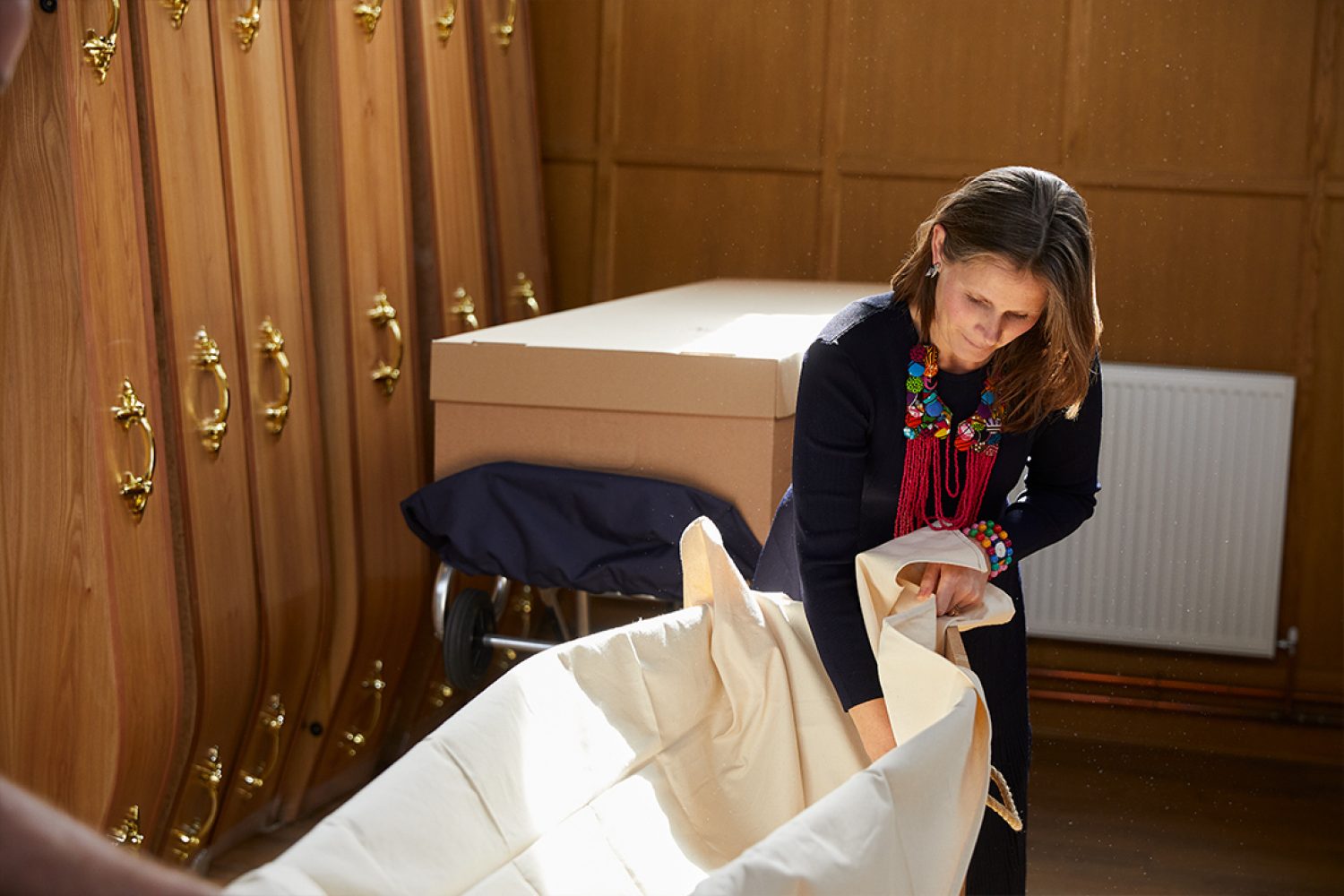Four minute read
The way we talk about death affects the way we treat people who have died and their family and friends. Founder and Chair Poppy Mardall argues that it’s time for us to find better language that works for all of us.
Watch our one-minute video introduction to Dead Good Words.
Listen to Poppy talk about Dead Good Words on the Vocal Fries podcast.
In the UK, when someone dies, we 'dispose' of them. ‘Disposal’ is a legal and technical term which has been used for over one hundred years to describe what happens to our bodies after we die. And it’s still being used today.
The definition of ‘disposal’ is “the act of getting rid of something, especially by throwing it away” – it’s another way of saying “chucking, scrapping, dumping, ditching”.
Using the word ‘disposal’ implies that we don’t care much about our dead people. It’s an odd, and damaging, word to use to describe the care I think we should be taking when seeing our bodies to their final destinations.
Time to change dehumanising language
There are other words that we use to talk about death which, when you stop and think about them, are outdated, unhelpful, and even downright offensive.
When we die, we immediately stop being referred to by name – we become 'the deceased'. In that moment of death, we lose our gender, our identity and our personhood.
When the funeral directors collect us from wherever we have died, they call it a 'removal'. Like, 'I'm going to come and remove your mum from her house.'
You might be asked if you’d like to ‘view’ the person who has died, as if you were going to look at a flat or test drive a car, rather than visiting or spending time with that person, just as you might have done when they were alive.
This dehumanising language shapes our attitudes and treatment of those who have died. And, because we will all die and we will all grieve, it impacts all of us.
Words have power
The words we use to describe what we do shape how we do it.
As a funeral director working to bring gentleness and thought to the process of caring for the bodies of people who have died, I see how using the word ‘disposal’, and other similar terms, helps to shape uncaring and thoughtless attitudes towards the dead.
Over the 11 years I have been working with dead people, media exposés on death care have kept coming. These exposés show inhumane, production-line treatment of the dead. It feels to me like people are being thrown away, chucked, scrapped, dumped and ditched.
Mortuary workers, like anyone else, want to feel that their work matters. We need to validate their work as care — as looking after people, not disposing of waste.
If you give people language, role-modelling, and emotional and practical support to do their jobs with care, gentleness and attention, that is what they will do.
Poor care for the dead is grim for workers, it’s traumatising for friends and family at the moment when they most need support and healing, and it’s destructive to the planet.
But it doesn’t have to be this way.
#DeadGoodWords — Finding new language
Language sets expectations and shapes attitudes. It can and should evolve, as society changes and evolves.
Many grim words have been thrown out of use once people said, 'this word is doing harm, this word is not serving us, please can we find a new one?'
We know it’s possible. Language around disability, race, gender, mental health and sexuality has changed dramatically in the last fifty years.
Today, it’s time to find neutral and correct language that returns the humanity to caring for the dead — language that will raise expectations and lift standards.
Some alternatives already exist. Others we need to create together.
No funeral director would ask a grieving family which disposal method they would prefer for their mum, brother, friend or child who has died. Instead, we talk about individual choices – burial or cremation. At Poppy's, we are also trialling a new word that we think works: reposal.
We have found accessible, humanising language to talk about the work we do to support the living and care for the dead. We use this language every day and are delighted to share our ideas in this #DeadGoodWords manifesto.
This is the start of the conversation. For change to happen, we need you to add your voice and your experience. We’d love to hear what you’d like to change and your alternatives. Please share these using the hashtag #DeadGoodWords.
Together, we can create new, better ways of talking about death that make people feel respected, cared for and understood.
To stay in touch with all the latest news and updates from Poppy's by email, sign up here or contact us if you need help planning a funeral.
